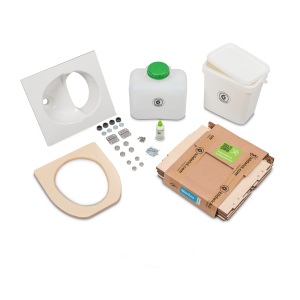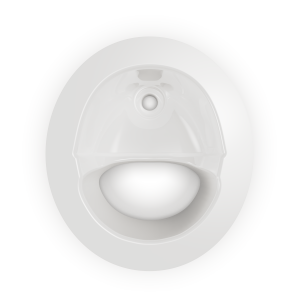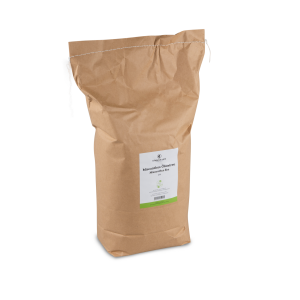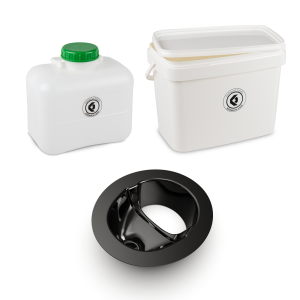We rely on it several times a day. Discreetly and reliably, it helps us keep our hygiene standards high. It would be hard to imagine life without it. It is time to thank it for its tireless service. On the occasion of World Toilet Day on 19 November, we say:
Thank you toilet! You are just great!
Because being able to use a toilet is far from being a matter of course worldwide. Many people have to do without the luxury of their own toilet. That's why we want to give toilets the attention they deserve. And at the same time, we want to take a look behind the scenes of how we take the use of toilets for granted.
Shit, poop & Co. - We make no secret of it
Especially when it comes to this topic, we don't want to mince words and simply question social taboos. After all, we all have a bowel and a bladder. But even though we have so many unbelievable words and funny paraphrases for the big and small business, we are surprisingly reluctant to talk about our daily excretions.
It used to be a taboo subject - from shameful to disgusting
Actually, we live in a fairly open society. However, there are certain matters that are not readily put on the table at dinner.
These include, above all, things that are actually quite natural. For example, the topic of sex and sexual organs is not easy to discuss with everyone. Illnesses are better dealt with quietly, and old age and death are things we prefer to ignore altogether. And even though everyone goes to the toilet, urine and especially bowel movements are a rather unpleasant and often inappropriate topic of conversation.
Everybody does it, but nobody talks about it (anymore)
There was a time when having a bowel movement together was a social event. Back then, no one felt uncomfortable talking about their bodily excretions. Why should they feel uncomfortable when they were there when their neighbour was doing his business or when it landed on the street in front of them?
Of course, this was not the finest way and certainly not hygienic, but at least no one was alienated from the natural processes of their body (or that of their neighbour). With the invention of the water closet, the toilet disappeared into a quiet chamber, and more and more rules of etiquette and conventions became important. So the matter became more and more a private sphere that people don't like to talk about and that takes place in secret.
Today, this has even gone so far that some inventions have been made to prevent people from hearing or smelling their bowels being emptied. In Japan, for example, you can press a button on some toilets to play music, birdsong or a flushing sound so that no one notices the appearance of urine or solids.
Speaking of other cultures - other countries, other customs
In fact, there are very big cultural differences in dealing with and evaluating excrement.
In India, it is sometimes even dangerous to do one's business. In many regions, fixed, private toilets are still a rarity. Women in particular often go alone to the forest or to a field to relieve themselves and have to be afraid of being attacked there.
Using public toilets is also not a good alternative, as they are teeming with germs and bacteria. In addition, there is sometimes a belief that there are evil spirits in toilets and that using them is only for people of low status.
Japan and South Korea provide a good example of a positive approach to excreta. For although people here are somewhat ashamed, they are happy when the intestinal tract functions well. Eating and defecation belong together here. There is even a toilet god. From infancy onwards, a grateful toilet culture is cultivated here. This is also reflected in the use of language. A positive omen for something good, for example, is affectionately described as follows: "With so much farting, poop is not far away. ("Banguga Jajumyeon Ddong Daenda.")
© @playpoopoo
The elephant in the room - change starts in the mind
It is becoming increasingly important to conserve resources and use natural processes sustainably.
But let's be honest - the basis for using excrement is a healthy and shame-free way of dealing with exactly that. Actually, our digestive system deserves a lot of appreciation and public admiration anyway.
Make friends with the contents of your loo! Shout it from the rooftops!
The extreme rejection of such a natural part of our existence not only prevents a relaxed approach to the valuable raw materials that our excreta can be. It also makes us unfree. Of course, at first it is unusual to be so close to one's own waste as is the case with a dry separation toilet - after all, we are all used to everything being gone with one flush. But it opens up a lot of possibilities to spend our lives exactly where we want to be - completely independent of sewers and the like.
Your body and you - no room for a taboo
Other countries already have it and we too can achieve a relaxed approach to our excretions.
Everyone has to go to the toilet, it makes noises and smells for everyone. And in the end, it is something that unites us all.








